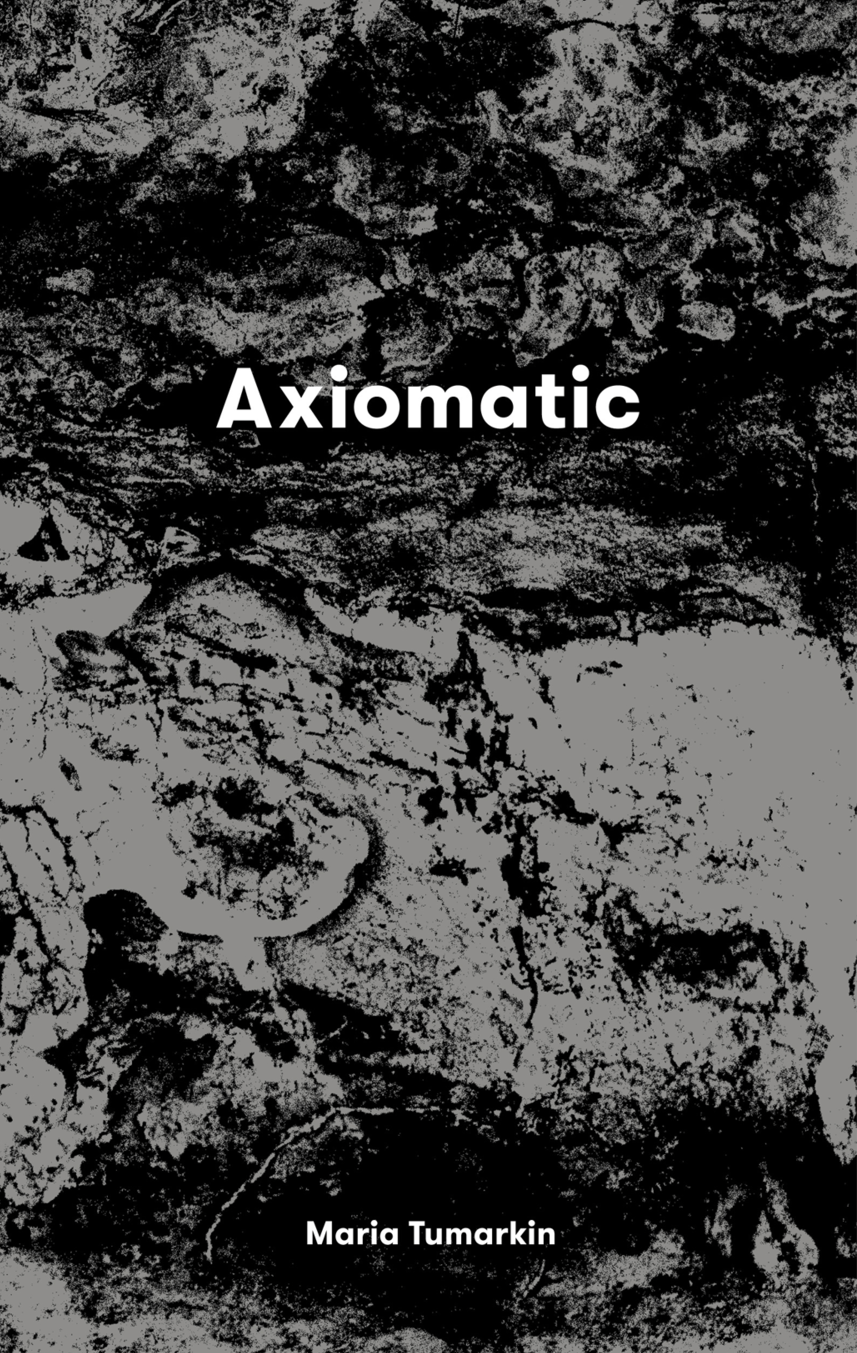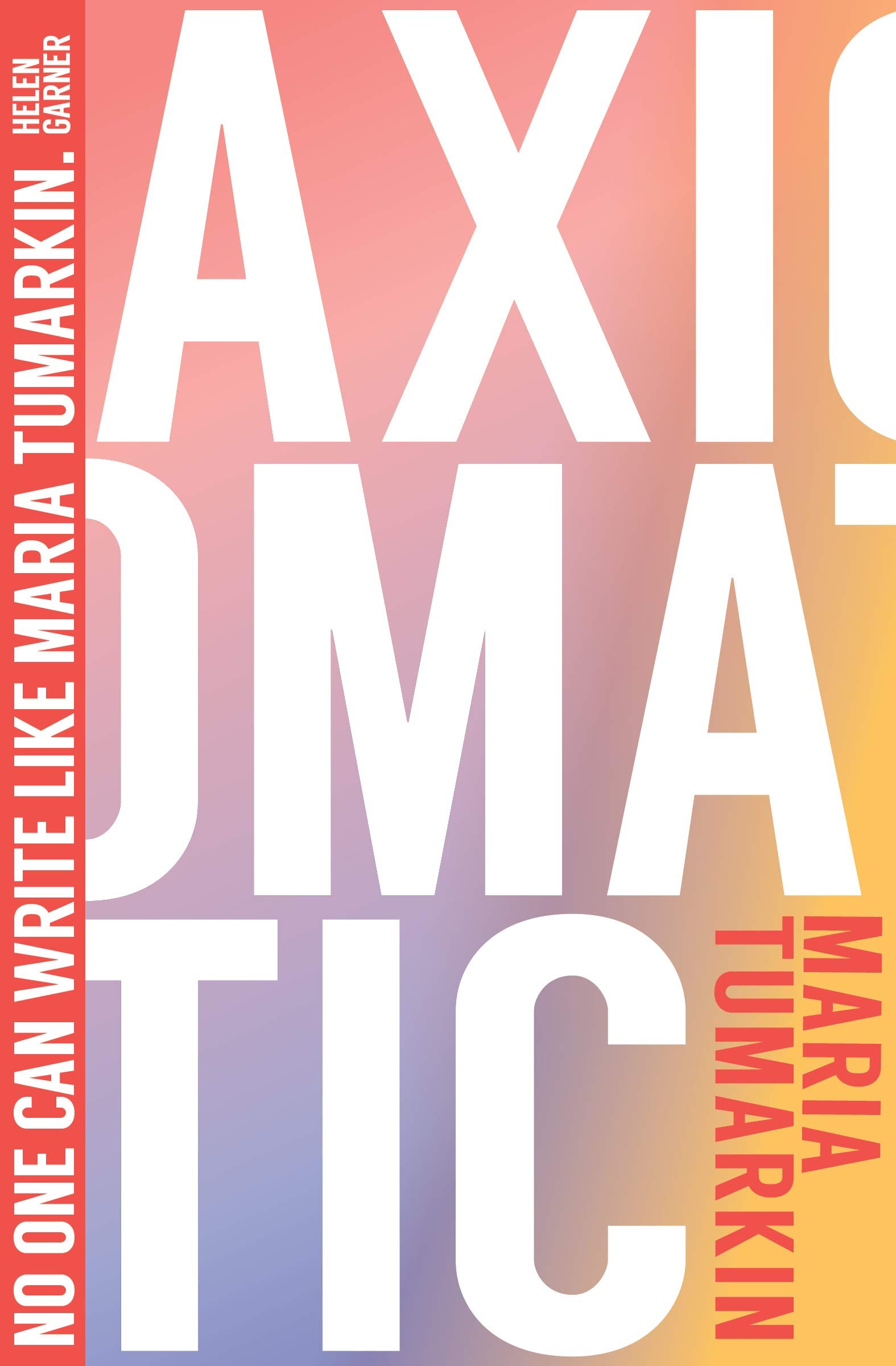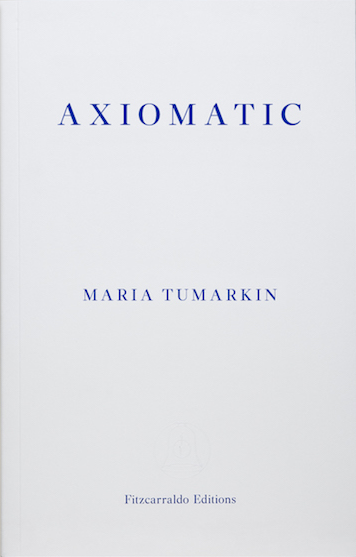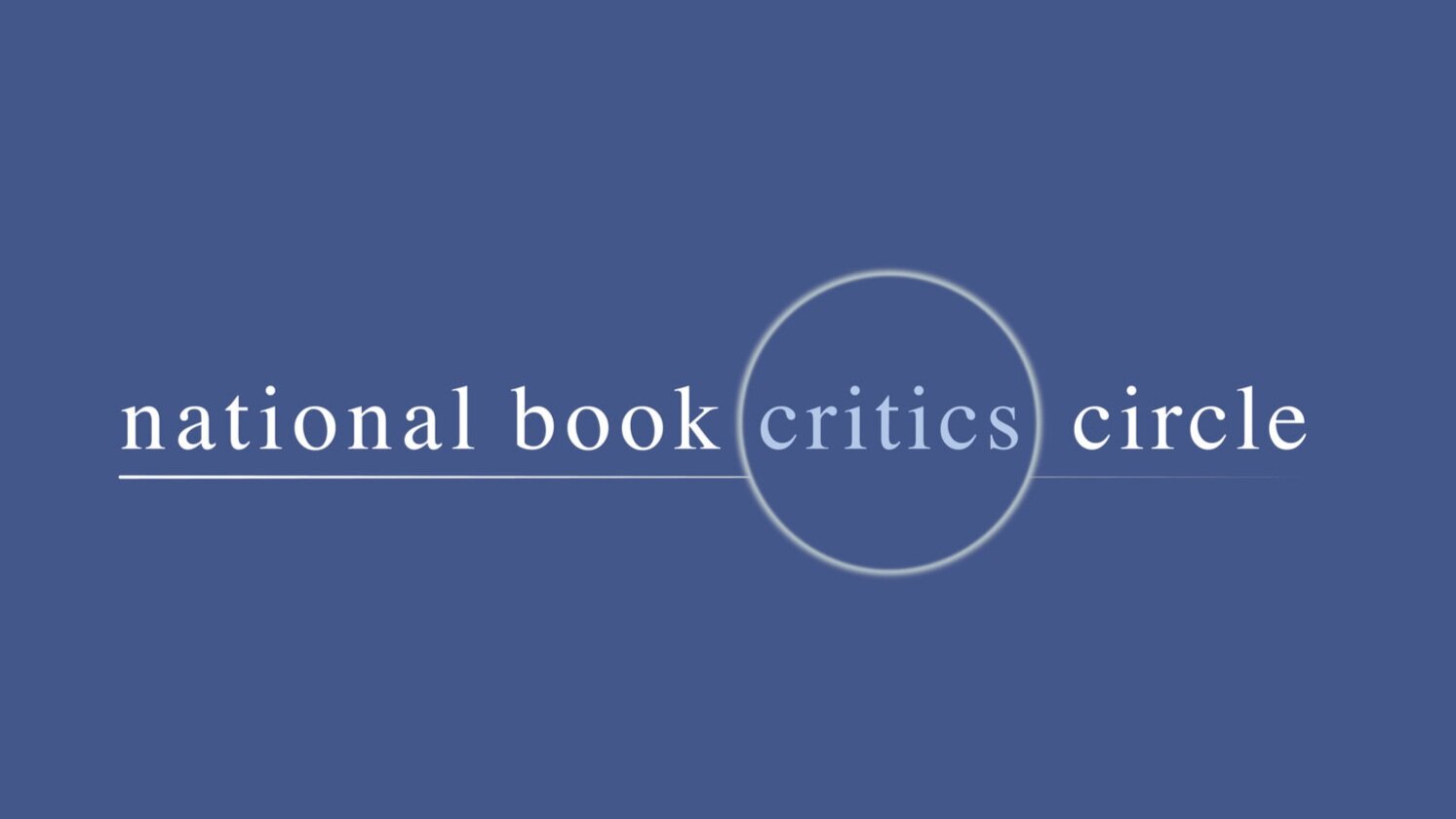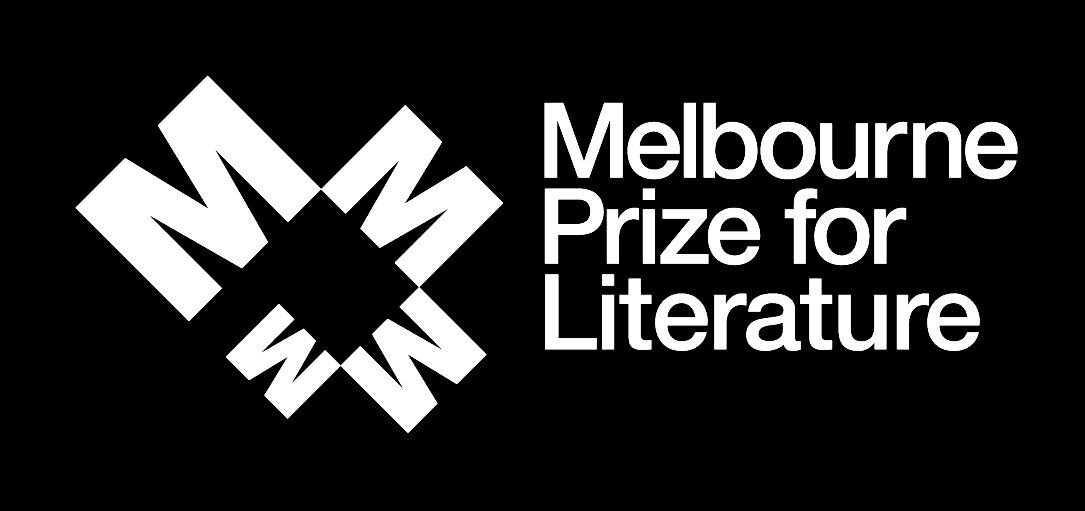Axiomatic
The past shapes the present—they teach us that in schools and universities. (Shapes? Infiltrates, more like; imbues, infuses.) This past cannot be visited like an ageing aunt. It doesn’t live in little zoo enclosures. Half the time, this past is nothing less than the beating heart of the present. So, how to speak of the searing, unpindownable power that the past—ours, our family’s, our culture’s—wields in the present?
Stories are not enough, even though they are essential. And books about history, books of psychology—the best of them take us closer, but still not close enough. Maria Tumarkin's Axiomatic is a boundary-shifting fusion of thinking, storytelling, reportage and meditation. It takes as its starting point five axioms: ‘Time Heals All Wounds’; ‘History Repeats Itself…’; ‘Those Who Forget the Past are Condemned to Repeat It’; ‘Give Me a Child Before the Age of Seven and I’ll Give You the Woman’; and ‘You Can’t Enter The Same River Twice.’
These beliefs—or intuitions—about the role the past plays in our present are often evoked as if they are timeless and self-evident truths. It is precisely because they are neither, yet still we are persuaded by them, that they tell us a great deal about the forces that shape our culture and the way we live.
News, Interviews, Reviews
Excerpts
history repeats itself (part 3)
This morning, that morning rather, two men in my carriage lift their heads – two men in their fifties in silky understated ties – then there is a little snap, like a red light camera going off, and even before the next stop gets announced they’re leaning into each other laughing how long has it been? Must be forty years give or take. What’s been happening? They run through their classmates: two cancers (one mid-chemo, one cannot hack chemo), a property development fraud, one guy (just the other side of a protracted settlement) with too many ex-wives (stupid bastard, he and them deserve each other). A pause. Please don’t tell me it’s all there is. Fraud, cancer, bad marriage picks, being caught, extricating yourself, chance encounters on city loop trains; can you remember the last time life felt long or kind, or like it was yours and mine?
My phone vibrates: one time only for texts. ‘Make sure you don’t have scissors, nail files, anything sharp.’ It’s Vanda. Thank you Vanda.
Shhh.
In front of me is time. Time is not a river. It is two strangers on a train whose briefcases touch as they hold each other. Two men who’ll never ride the same train again.
I don’t remember getting off or walking. Somehow I reached the courthouse doors on William Street where my bag was screened, nothing sharp in it, and the structure that looked dull and huge on the outside, a building without qualities, was alive and brown inside with wrappers pulled off chocolate bars, doors slamming, others opening, kids in school uniforms who were not, as I’d guessed, witnesses to inexplicable suburban crimes but legal studies students bored on a field trip. Several of the magistrates looked like Karl Heinrich Marx. In a lift I stood next to a lawyer with the face of someone who sometimes forgets he has not, yet, seen it all. I looked at him. He looked at the crease in his hardworking pants.
What is the Court 8 clerk wearing today? Orange jacket, there you go, bold choice for the setting. And what is Court 8’s loudest sound right now? My fineliner pen making notes about courtroom silence. Big silence in a roomful of busy-looking people is jarring. Then the magistrate appears – once he’s seated, that silence is gone – and to a man on the stand whose second drink- driving offence is the day’s first matter he says, ‘I cannot take your past away,’ and it is like some subterranean conversation underneath the one everybody can hear is flowing about how to be alive is to be caught in one web or another. ‘I know your first offence was twenty years ago but your past doesn’t disappear. If police stop you, they’ll test you.’ The magistrate means it’s your last chance, your cufflinks can’t save you, the taxes you pay won’t save you. He also means: nothing is more human than the experience of feeling trapped. And everything’s a trap, your past, family, genes, addictions, loneliness, that feeling that pretty much everyone else is galloping gaily ahead while you are crawling backwards like a lobster or lopsided baby.
give me a child before the age of seven and I will show you the woman (part 4)
V.W.
Patient goes to doctor. ‘Doctor,’ he says, ‘you have to help me, I am in desperate need. I’m pissing everywhere.’ Doctor gives him a tablet and tells him to come back. In a few days as agreed the patient comes back. ‘Hello doctor, how are you, how is your wife?’ the patient says cheerfully. ‘What a positively lovely day it is.’ The doctor is bemused and asks: ‘And how is your condition?’ ‘Oh, it’s great, doctor. I’m pissing everywhere but I don’t give a fuck about it anymore.’
Roman Polanski told this joke to Vera Wasowski sometime in the 1960s when they saw each other in London. Polanski lived in London then, post-Poland, pre-Hollywood. He took Vera to some fancy club frequented, so he mentioned in passing, by Mick Jagger. She remembers the joke but forgets the club’s name. It was the Ad Lib club – see a 1983 Clive James interview with Polanski, post-Hollywood by then. Vera in the 1960s was living in Australia, dreamy dull flatland which was nothing much like London of the 1960s, not at all like Warsaw of the 1950s – what are the stats? Gone, 85 to 90% of it, in the war. The ‘most agonising spot in the whole of terrorised Europe’ said poet Czeslaw Milosz yet a city which allowed the flourishing, only a few years later, of people Vera calls, insistently, ‘intellectual elites’. She says ‘top’. She says ‘world class’.
They’d all come together, film-makers, journalists, actors, intellectuals, Andrzej Wajda in whose Pokolenie Polanski made his acting debut, Vera, her journalist-husband Jan; they would get in one room. And sparks! Wasn’t the doctor-patient joke actually about them? The ability to not give a fuck – was it not one of the few freedoms possible in their country now it had been Stalinised? Whatever was being surrendered and taken over in the outside world, the inside of one’s head was one potentially unreachable place. Most of the people around Vera and Jan in Warsaw in the 1950s had that place inside that belonged to them only. The state’s fingerprints were all over work you did, streets you walked, the whole school-university-job-pension track. You had to register your typewriters. The air itself was like that: breathe in and out, once, and you were implicated. But there were ways of being free or at least acting as if you were free, ways of blending with no wallpaper. Watch Vera and Jan and you’d know. It was possible to cultivate a willed conspicuousness. To banish meekness. And channel abandonment. Let’s say you were not circumspect about the volume at which you spoke in public and not fastidiously self-censoring about the contents of your speech either, and your quantities of alcohol drunk weren’t moderate and you were, maybe, borderline scandalous in how you did love, sex, family while the poems you’d memorised were poems of Adam Mickiewicz, who considered Poland the Christ of nations, not those by some servility-extolling, drum-beating Party stooge.
Poetry, art, drinking, affairs. These were not luxuries or sweeteners, no. Not extra-political digressions. It was all too easy to rage deep inside at a regime that, as poet Adam Zagajewski wrote, had no time for agriculture or architecture or literature or the railway system but time without limit for its army, police, speeches, parades. The trick said Zagajewski was ‘to conquer totalitarianism in passing, on our way to greater things’. Lest you become defined by your opposition to it. Lest you get enslaved by the fight against it. So many surrounding you did. One of the twentieth century’s lessons went precisely: sooner or later you become what you fight. So: poetry, art, drinking, affairs . . . Essential inoculations?
No. Yes. What they did was produce a wildness, a state of constant incalculable movement of the soul. As long as the soul kept moving, expanding, opening its chambers, speeding up and slowing down like a wise fugitive who knows how to run in large open spaces while evading a sniper lying in wait, it could not be co-opted fully. Were these inoculations enough? Yes. No. To most questions about Poland lurk two answers minimum. In Milosz’s book The Captive Mind is a version, more an inversion, of Polanski’s doctor joke. The ‘Pill of Murti-Bing’, a fictional wonderdrug Milosz encountered in a little-known 1930 Polish novel by Stanislaw Ignacy Witkiewicz, soothes nagging dread, making those who pop it ‘impervious to any metaphysical concerns’ and, soon enough, welcoming of imminent invader dictatorships from the East. Witkiewicz killed himself on 18th September 1939 after learning the Red Army had crossed Poland’s eastern border. Milosz defected to the West in 1951 after spending the entire five years of German occupation in Warsaw. Perhaps the doubleness of the doctor joke was always there. Perhaps the doubleness of the joke was the joke.
When Poland was overrun Polanski was six. Vera – a year younger. Out of a million Polish Jewish children younger than fourteen about five thousand were alive by war’s end. Most survived the way Polanski and Vera survived, hiding in convents, boarding schools, orphanages, on farms, in attics, with Christian families. In holes, caves, forests, between false walls, in cupboards. Jan’s survival was different; he was in Kazakhstan. Jan’s father, editor of a Jewish newspaper when Jewish newspapers still existed in Poland, had the foresight to get his family out. At their second romantic dinner Vera told Jan about what happened to her. She was brief, rolled the whole thing into a few sentences, no drawn-out sagas. He, her formidable future husband, could not drive back tears.
A Windham Campbell Prize 2020 winner
One of The New Yorker’s Top Ten Books of 2019
Shortlisted in the National Book Critics Circle NBCC Awards
Winner of the Melbourne Prize for Literature’s Best Writing Award
Shortlisted for the Stella Prize
Shortlisted for the Prime Minister's Literary Awards
Shortlisted for the Victorian Premier’s Literary Awards
Shortlisted for the New South Wales Premier’s Literary Awards
Longlisted for the Australian Indie Book Awards
Reviews
“Nobody can write like Maria Tumarkin: she charges headlong into the worst and best of us, with an iron refusal to soften or decorate; sentences bare of artifice, stripped back to the bone, to the nerve; fired by raging grief and love.”
—HELEN GARNER
"The book is comprised of restless, gorgeous essays, each of which uses an aphorism to reflect on... trauma, the ongoingness of the past, and the unworkability of language."
—KATY WALDMAN, THE NEW YORKER
“Maria Tumarkin writes of difficult topics with utmost integrity. Axiomatic is a dark gift: heartfelt, painful, full of sorrowful compassion. From schools, courtrooms, prisons, refugee camps, Soviet spaces and more personal inner life, come stories that break open the silence of suicide and the mystery of spirited persistence.”
—GAIL JONES
“A brilliant kaleidoscope of arresting observations on suffering and innocence in modern times, Axiomatic is by turns illuminating, infuriating, engrossing and even amusing. I feel ambushed.”
—ROBERT DESSAIX
“...the work of a virtuoso, someone who has relentlessly honed her ability to make ideas progress rapidly through sentences, using an order and style that she has innovated, such that the path to a reader’s enlightenment is steep and narrow but clearly marked. Like Maggie Nelson’s, Tumarkin’s is the kind of writing that makes much creative nonfiction seem clumsy and rudimentary, as if everyone else is writing way too many words about smaller, pettier ideas.”
—KATHARINE COLDIRON, THE BELIEVER
“As a writer she pushes at the edges, and then pushes further; she wants to shout, and sometimes she does. Axiomatic is a bracing ride. At its heart is the big question of the past and its traumas. How do they play out? Where does trauma begin? In history? Genes? Family? Society? Is comfort to be found in the familiar truisms we’re so quick to roll out?”
—DRUSILLA MODJESKA, INSIDE STORY
“Everyone is looking for the next Helen Garner and Maria Tumarkin shares with Garner a gimlet eye for the flaws in official systems, along with a fascination for the narratives nested in everyday lives. Axiomatic’s symphonic structure, however, recalls Svetlana Alexievich, the Belarusian journalist and Nobel Laureate. She is another for whom reality attracts like a magnet, who has made a career out of appropriating and braiding voices and documents, seeing the world as a chorus and a collage. With this remarkable, wild, risk-laden book, Tumarkin has earned the right to be mentioned in the same breath as both of them.”
“Axiomatic is a series of open-ended essays about different people, as well as Tumarkin’s own intense experiences of love and friendship. Consoling pieties do not interest her. There is no resolution, no comfort. It is a bleak view of the world, but for many people, including Tumarkin’s friend Vera, 'That’s how it goes.' This happened. That happened. I am here. You are here. Lucky for us Tumarkin is here, too. Trying.”
—HELEN ELLIOTT, THE MONTHLY
“Again and again in Axiomatic, Tumarkin confronts the meagreness of the written word in the face of trauma as she muses on her inability to write the text she had intended ("I was working on this book and a year passed, then two, and two more …"). Yet again and again, she herself demonstrates what literary prose can do.”
—JEFF SPARROW, SYDNEY MORNING HERALD
“There is a convention, towards the end of a review, to compare the writer with their peers, contemporary or long gone, to situate them in a continuum, to give a curious reader an idea of what they would expect. But to compare this work to anything on the shelves would be a disservice and, besides, the sheer breathtaking ambition of it has humbled and shamed me out of it. ... With Axiomatic, Tumarkin is simply operating on a higher level to the rest of us.”
—LIAM PIEPER, THE AUSTRALIAN
"In Axiomatic, her fourth book, Tumarkin unleashes a freewheeling energy that was restrained in her previous books. ... In many of its most lucid passages, Axiomatic achieves gravitas and a psalm-like plaintiveness. Memorably, Tumarkin draws upon a creation mythology to liken human beings to ‘broken vessels’ full of divine light. Spilling out of this vessel, shards of this light, our past experience, lodge in the present. Axiomatic reminds us that our word ‘poignant’ comes, via French, from the Latin pungere: ‘to prick, to sting’."
—DARIUS SEPEHRI, AUSTRALIAN BOOK REVIEW
“Maria Tumarkin’s shape-shifting Axiomatic deploys all the resources of narrative, reportage and essay. It is a work of great power and beauty. With mainstream journalism investing most of its analytical energy in the foggy concept of populism, the most illuminating historical and sociological explanations of our age of crisis have come from small magazines and university presses.”
—PANKAJ MISHRA, THE GUARDIAN
“What a wonderfully idiosyncratic, distinctive and rather wise book this is. Maria Tumarkin takes five familiar sayings – axioms – to meditate on, challenge and interpret by talking, sometimes over years, to a range of people whose experiences enlighten, educate and enliven in surprising ways. Tumarkin, who brings her own experiences to play, writes in a sometimes fierce voice that is utterly her own and brings with it an inquiring mind that together make for a thought-provoking experience.”
—JASON STEGER, THE AGE
“That the essays come across as original is a testament to their artful construction, as they organically navigates the networks of a community and evoke a larger system through its smaller components.”
“Tumarkin is attuned to the realities of unconquerable, systemic inequalities, as well as the crushing burdens that often come with one’s familial history, recognizing the real limits of human agency to affect personal change in such circumstances.”
—JOEL PINCKNEY, FULL TOP
“What Tumarkin has produced is unlike any work of non-fiction I have read to date. To call it experimental or poetic does not cover the breadth and originality of her work. Not only in style, but in content, in the way she draws out the human experience and lays bare something fundamentally true, honest and almost unbearably tender. There is power in this, and strength. Tumarkin does not shy away from the uncomfortable, from the too-hard-to-be-written-or-even-contemplated, but faces it head on, with dignity, and with knowledge of her own fallibility.”
—CAITLIN CASSIDY, RIGHT NOW
“By inhabiting and embodying the spectrum of human pain and suffering, Tumarkin fights for every person encapsulated in Axiomatic, and in doing so has created something deeply original and essential to understanding the core of the human experience.”
—SONIA NAIR, FEMINIST WRITERS FESTIVAL
“This is a highly original collection unlike anything I’ve read by an Australian author. Tumarkin’s writing style is unflinching and unique and her insight into human behaviour is extraordinary.”
—KARA NICHOLSON, READINGS
